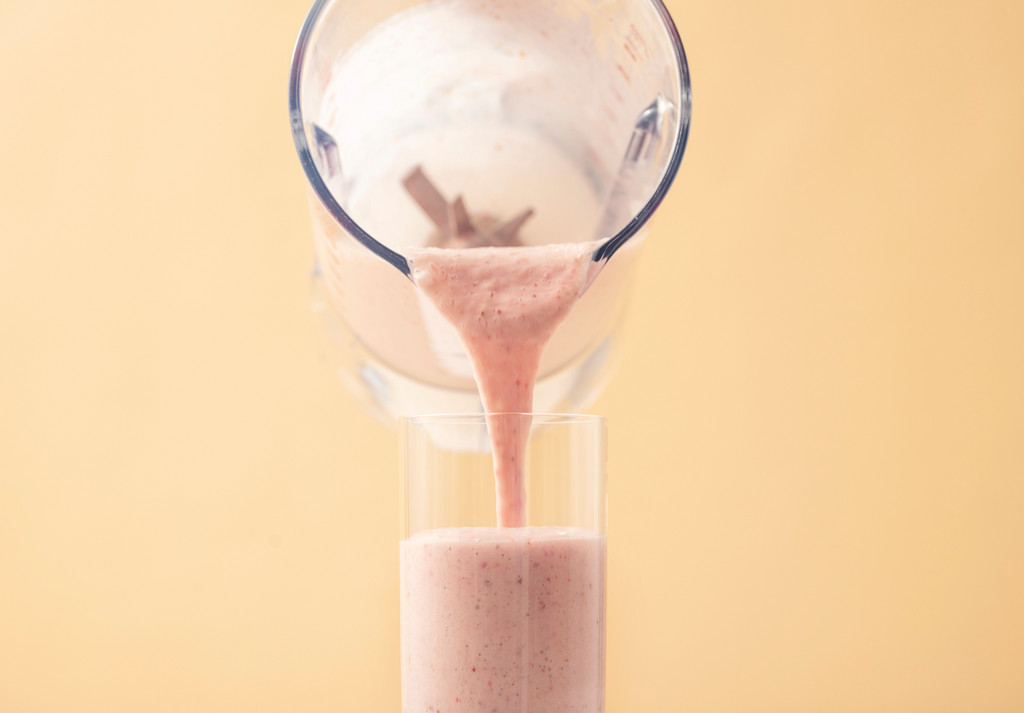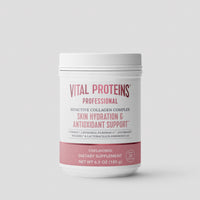When scanning the labels of your favorite better-for-you goodies — protein bars, protein shakes, yogurt and sports recovery drinks — you may find a lot of ingredients that are hard enough to pronounce, much less understand.
At some point, you might also find yourself asking, "what is milk protein isolate?" If so, here's the skinny on this lesser-known ingredient: Milk protein isolate is the substance obtained by the partial removal of sufficient non-protein constituents (lactose and minerals) from skim milk so that the finished dry product contains 90% or more protein by weight.
"This allows it to be a more versatile milk or protein replacement for a wider array of individuals rather than those looking to add muscle alone," says Lisa Richards, nutritionist and author of The Candida Diet.
Keep reading to learn more about milk protein isolate and why some RDs swear by it.
Vital note: This article has been made available for informational and educational purposes only. It is not intended to be a substitute for professional medical advice, diagnosis, or treatment. Always seek the advice of your physician or another qualified health provider with any questions you may have regarding a medical condition. Your licensed healthcare professional can best provide you with the diagnosis and treatment of any medical condition and assist you as well in deciding whether a dietary supplement will be a helpful addition to your regimen.
is milk protein isolate the same as whey?
Like the name says, milk protein isolate has been isolated from whole milk while whey isolate is sourced from whey alone. "Whey isolate has had most of the fat and carbs removed leaving around 90-95% protein," Richards tells Lively. How milk protein isolate and whey are made is also different. According to Shannon Henry, RD, milk protein is "made from skim milk (condensed milk) whereas whey protein is obtained from just whey (a by-product of cheese and casein)."
When asking "is milk protein isolate the same as whey?" it's important to factor in the differing benefits between the two. Milk protein isolate does boast this upper hand: "It contains many of the beneficial amino acids and nutrients that whey protein isolate does not," shares Richards.
Can’t risk a sip of regular milk? With milk protein isolate, there's no need to fret. "Milk protein isolate is a great option for those who are lactose intolerant since it contains very little to no milk sugar," explains Richards.
Make whey for the whey benefits since those exist, too. Dan DeFigio, a certified sports nutritionist and personal trainer in Nashville, says that whey comes with "health goodies" aka healthy compounds. This includes phospholipids, IgG immunoglobulins, glycomacropeptides, prebiotics and anti-microbial peptides.
how is milk protein isolate made?
"Milk protein isolate is made by the removal of non-protein sources (lactose and minerals) from skim milk (condensed milk)," Henry explains to Lively. The final dry product consists of 90% protein by weight.
If the answer to "how is milk protein isolate made?" doesn’t convince you to make the switch, this might: "Milk protein improves a high-quality boost of amino acids to these products that helps you increase or maintain lean muscle, makes you full and energetic as well as enhances body structure," says Henry.

is milk protein the same as milk?
While milk protein isolate contains the same protein components of milk (whey and casein), the similarities stop there, according to Vanessa Phillips, Nutritional Therapy Practitioner at JM Nutrition.
She says: "The fat as well as much of the carbohydrates — or milk sugar called lactose — as well as the micronutrients found in fresh milk have been filtered out, leaving behind milk protein isolate."
The other nutrition experts agree: The answer to "is milk protein the same as milk?" is no. "The 'isolate' process is filtration to remove almost all the lactose and fat," explains DeFigio. While this makes milk protein isolate lower in calories, fat and lactose (good news for those looking to slim down), there are some drawbacks.
If you're allergic to milk, for example, milk protein isolate isn't a good alternative. Erin Kenney, RD, says that people should avoid the proteins casein and whey if they have an allergy to milk. "This falls under the category of milk protein isolates," she says.














